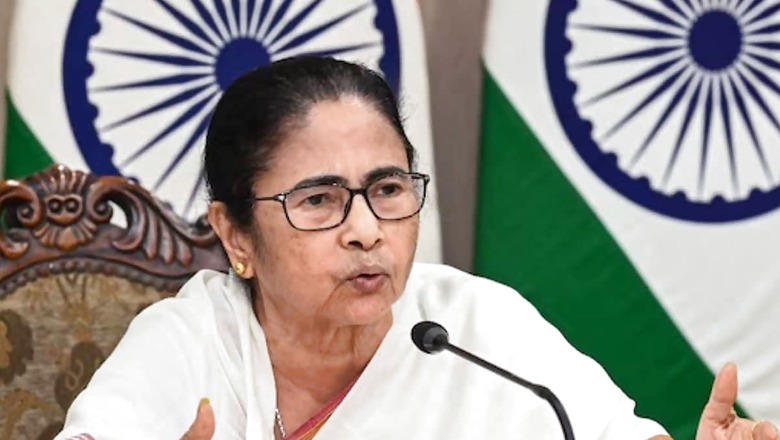
views
The Aparajita Bill that the West Bengal government passed in the state Assembly is symptomatic of two extremely disturbing trends in India: First, reducing governance to a string of events; and, second, the growing sentimentalism in not just the political arena but everywhere.
Evidently, the Bill is Chief Minister Mamata Banerjee’s political reaction to the flak her government has faced because of the horrific rape and murder of a 31-year-old doctor in Kolkata’s RG Kar Medical College and Hospital. The Aparajita Bill is aimed at amending some provisions in the criminal code, Bharatiya Nyaya Sanhita (BNS), for the state—essentially, making the penalties for rape and child abuse more stringent.
One wonders how the harsher punishments would deter a pervert. Consider this: the new legislation seeks to amend Section 64 of BNS. Section 64 says that a rape convict will face rigorous imprisonment not less than 10 years and this may extend to life term. The Aparajita Bill increases imprisonment to the “remainder of that person’s natural life and fine, or with death.”
It is highly unlikely that a man who is not afraid of a jail term of more than 10 years would fear life in prison.
But then, as I said earlier, the proposed Bill is a political reaction rather than an honestly desired and prudently planned piece of legislation; it is indeed a red herring, intended to divert public discourse away from the rot in the administrative machinery in West Bengal.
Such shenanigans are common in India; all political parties adopt deceitful and diversionary tactics when they are roundly condemned for some act of omission or commission. More often than not, they also succeed in their endeavors.
This is not surprising in a country where governance is widely misunderstood by the political class—or maybe the misunderstanding is deliberate. Our political masters regard governance as a congeries of events. The truth, however, is that it is a process involving a great deal of honesty, hard work, and even drudgery—the things that our politicians are not very fond of. It calls for rationalization of rules and regulations, their proper implementation, endless file work, and serious interaction with all the stakeholders. It is certainly not as exciting as, say, announcing the food security law or some awe-inspiring infrastructure project. It is surely not sexy.
Quite apart from being unsexy, any effort to carry out administrative, police, and judicial reforms—which are urgently needed in our country—can be politically hazardous. After all, it is people like Sanjay Roy, the prime accused in the Kolkata case, Sheikh Shahjahan of the Sandeshkhali fame, and the uncouth Shrikant Tyagi in UP’s Noida who often make the rank and file of most political parties. Such are the wages of the criminalization of politics and politicization of crime.
These are the people whom top leaders find useful. While editorialists bemoan the declining standards in politics and gloomily remember the great days of Mahatma Gandhi, practical politicians cement their covenants with the local roughnecks with proven bravery in such dangerous activities as land grab and illegal mining.
On their part, the top leadership of all parties also pays lip service to honesty and propriety in politics and public life. Almost every leader is capable of boring you to death by lecturing on the subject of morality in politics. Hypocrisy scales new peaks every day.
Unfortunately, it is not just politicians who have contributed to the mess; intellectuals and cultural elites are equally, if not more, responsible. One of their biggest sins is their unquestioning acquiescence to politicians’ sentimentalism and sanctimony. The worst examples can be seen in the blind acceptance of the phraseology deployed by politicians, especially in Hindi, the language spoken and understood by the largest number of people in India.
Politicians’ cant is apparent in their neologisms like beti (for young women) and annadata (for farmers). If such references are made once in a while, in a rhetorical manner, one can understand, but you can’t use these words in the normal course. Politicians do that anyway. Sadly, the Hindi media imitates them. So, it is not a lady doctor, but ‘Kolkata ki beti’ who got raped and murdered at RG Kar Medical College and Hospital.
Another consequence of sentimentalism is infantilisation. So, the three youngsters who got killed in Delhi’s Rajinder Nagar become bachche (kids). Their death was indeed unfortunate, but they were young people, well in their twenties; by no stretch of imagination can they be called children.
Lawrence Bragg (1890-1971), an Australian-born British physicist and X-ray crystallographer, had won the Nobel Prize for Physics at the age of 25 in 1915. And the famous romantic poet John Keats died when he was 25, leaving behind an impressive collection of poems which are admired till date.
With the kind of political and thought leaders we have, it looks like the political arena and public discourse will continue to putrefy in the foreseeable future.
The author is a freelance journalist. Views expressed in the above piece are personal and solely those of the author. They do not necessarily reflect News18’s views.



















Comments
0 comment